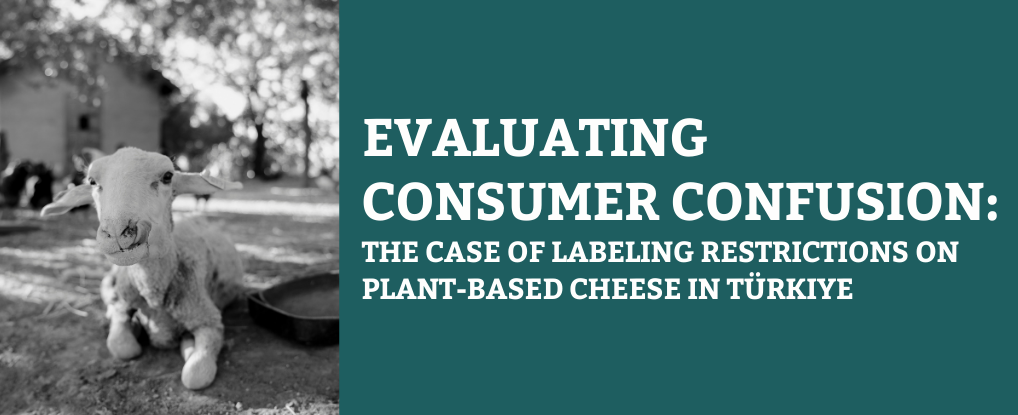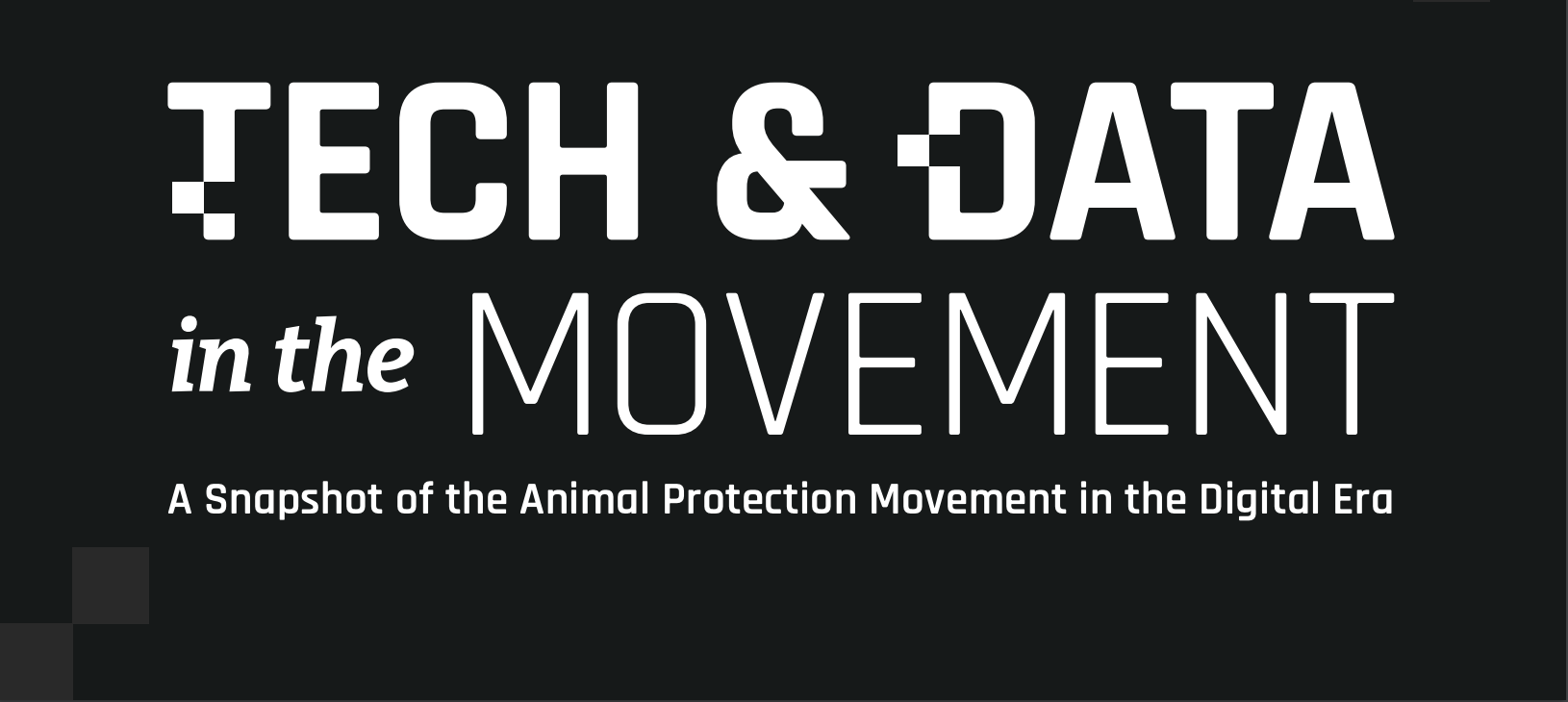
Projects
Finalized Projects
Evaluating Consumer Confusion: The Case of Labeling Restrictions on Plant-Based Cheese in Türkiye
— Animetrics and Dr. Gizem Kurt
Recent global restrictions on terms like "cheese" or "meat" for plant-based alternatives are creating barriers to industry growth, often justified by unproven claims of consumer confusion. These barriers are especially prominent in contexts where plant-based alternatives are less common, which highlights the urgency of challenging these restrictions as a vital advocacy priority. However, several important questions remain unanswered: Are consumers genuinely confused by these terms? If so, who is more confused, and can such bans effectively address the problem? More importantly, could alternative solutions, such as clear vegan certification labels like the V-label, better address these concerns?
In Türkiye, where restrictive regulations aim to ban terms like “cheese” for plant-based products, we conducted the first-of-its-kind study with over 2,700 participants to examine the root causes of consumer confusion. Our findings reveal that removing the term “cheese” does not reduce confusion, while clear labeling, such as the V-label, significantly improves understanding of product content and origin. By exploring the impact of consumer habits, familiarity, and education, we offer evidence-based solutions to replace ineffective bans with strategies that promote transparency, empower consumer choice, and support the growth of ethical and sustainable food systems.
Tech and Data in the Movement
— Animetrics and Vegan Hacktivists
What is the level of technology and data utilization in the movement, what are the challenges, and what can be done? In collaboration with Vegan Hacktivists and with insights from Faunalytics, we conducted the first-of-its-kind study to understand how our movement leverages technology. Our extensive 50-page report explores technology utilization across topics such as employment, websites, applications, social media, data collection and analysis, and security. By highlighting both challenges and opportunities, we present actionable recommendations to pave the way for a more technologically adept and data-driven movement.
Ongoing Projects
Understanding Knowledge Gaps of Halaal Animal Welfare Practices among Muslim Populations
— Animetrics
Many halal consumers associate halal-certified meat with higher animal welfare standards and the avoidance of cruelty in how animals are raised, handled, and slaughtered. However, this perception does not always reflect actual production practices. In this first-of-its-kind study in Turkey, we investigate whether there is a gap between consumer beliefs about animal well-being in halal food production and the realities of how halal-certified products are produced. We also examine whether providing accurate information about these practices influences consumers’ purchase intentions. The study also explores how these knowledge gaps and reported changes in purchase intentions relate to factors such as religiosity, understanding of halal guidelines, dietary habits, and perceptions of animal welfare. As a major player in the global halal market, Turkey offers a valuable setting for understanding how to align consumer expectations with production realities. The findings will support efforts to hold the industry accountable, empower consumers to make informed choices aligned with their values, and guide more effective, evidence-based advocacy strategies for organizations working with Muslim communities.
Muslim Perspectives on Animal Welfare and Halal Food Systems
— Animetrics and Kaleem Ahmid
How do Muslims around the world perceive farmed animal welfare? What role do religious beliefs, values, and dietary guidelines—such as halal—play in shaping attitudes toward meat consumption and animal treatment? We are conducting the first large-scale, cross-country study of Muslim perspectives on farmed animal welfare and the halal food system, spanning 15 countries. This research is particularly timely as the global Muslim population continues to grow and gain economic influence, making their consumer choices increasingly impactful on animal welfare outcomes. By examining the intersection of Islamic teachings, dietary practices, and animal welfare concerns, this study will provide essential insights for animal advocacy organizations—especially those that include Muslim communities within their target audience. The findings will support the development of effective, culturally grounded strategies for improving farmed animal welfare standards and reducing animal-based product consumption.
Direct and Spillover Effects of Educational Interventions on Attitudes Toward Plant-Based Diets: Evidence from a Controlled Experiment
— Animetrics, Mercy for Animals, and Bryant Research
We explore how educational programs can directly change attitudes about plant-based diets and how these changes might spread to friends. Using a controlled experimental design with university students, we aim to understand if students who receive the intervention change their views and if their peers, who don’t participate, also change their opinions through spillovers. This is important because understanding these spillover effects provides a more complete view of how educational strategies influence broader dietary shifts and helps us design more effective interventions that reach beyond the initial participants.
Attitudes towards Farmed Animals in the Middle East and North Africa Region
— Animetrics, Sezin Ekinci, and Middle East Vegan Society
Understanding public attitudes toward animal agriculture is crucial for shaping effective regulations. While much research exists in Western countries, studies on Muslim populations are extremely limited. As Muslim populations represent a significant and growing segment of the global community, their religious and cultural beliefs, such as Islamic teachings on animal welfare, play a key role in shaping views on animal welfare and agriculture. Including these perspectives is important for creating policies that are both inclusive and globally relevant.
This study builds on earlier work by Mercy for Animals, which explored international views on farmed animals, speciesism, welfare, and plant-based diets. We expand this by focusing on the Middle East and North Africa region, with attention to Islamic views and regional issues. By addressing topics like halal and religiosity, we aim to gain a deeper understanding of public attitudes and support for animal welfare in this context.
Future Projects
Policy Makers' Preferences and Strategies for Driving Change
— Animetrics
In this study, we plan to conduct an experiment with policymakers to assess their preferences for specific types of research output. The objective is to uncover the most effective strategies for driving policy change.


